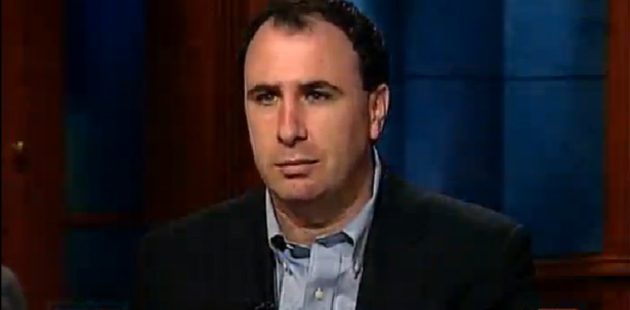Jonathan Chait thinks PC’s a problem. He’s wrong
It’d be redundant to echo the righteous heat Jonathan Chait already is taking for his complaint that “the language police are perverting liberalism.” I have touched on many of these points before. The politics here are so inflammatory, however, that one severe problem is easy to miss: he never bothers to demonstrate the article’s factual premise.
After all, Chait is not simply arguing that PC is bad — he’s also arguing that it is happening. But none of this is ever substantiated. Typical claims that Chait makes but never bothers to establish:
- “large segments of American culture have convulsed into censoriousness”
- “one professor…has noticed a dramatic upsurge in her students’ sensitivity”
- “These sorts of episodes now hardly even qualify as exceptional”
These sorts of factual claims, described with pseudo-quantitative rigor, are at the heart of Chait’s grievance — but he never bothers to demonstrate that they’re actually true.
And anyone familiar with this genre of writing knows why. “Political correctness run amok” pieces always do the same three things: 1) they warn that the PC menace has grown into a historically extraordinary threat; 2) they demonstrate this with a parade of totally sensational anecdotes; and 3) they thereby have somehow proven the enduring danger of the political left. The only new element here is that it’s appearing in New York Magazine, rather than on Free Republic or in The National Review.
Of course, none of this ever gets around to actually demonstrating that PC is a substantial problem with significant consequences for anyone.
Tellingly, even as far as anecdotes go Chait’s aren’t particularly compelling. For example, as proof that political correctness has “more than theoretical power,” Chait tells the story of Mireille Miller-Young. This is a person who “engaged in vandalism, battery and robbery” — but in a truly sinister development, Miller-Young’s political allies “wrote letters to the sentencing judge pleading for leniency,” and some even argued that the crime was “an ideological construct”.
“These are extreme ideas,” he concludes — an odd kicker to a story that set out to show how political correctness is more than just a set of ideas. As for Miller-Young? Chait conveniently fails to mention that she was convicted on precisely those charges that he named — vandalism, battery, and robbery — and sentenced to three years of probation, 100 hours of community service and 10 hours of anger management classes.
Somehow, wicked political correctness did nothing to change the outcome of the case, a point worth considering if we care about the facts.

Carl Beijer is a writer who focuses on the Left, linguistics, and international affairs.


The reaction to Chait’s article more than confirms the thesis of the article.
That isn’t even hypothetically true, which is the entire point of this article.
For instance, Chait claims that “large segments of American culture have convulsed into censoriousness”. To “confirm” this in any meaningful sense, you would have to define some kind of metric of “censoriousness” and then measure it. There are any number of ways you could do this – surveys, ngrams, etcetera – and if you actually took the trouble to do it, you would have grounded this thesis in some minimal semblance of fact.
Instead, Chait (and people like you) are still purely relying on anecdotal evidence. It is easy enough to point out that the reaction to Chait’s article proves nothing, since people who read Chait are not necessarily a representative sample. More importantly, no metric or methodology has been given here, for the simple reason that you and Chait care a lot more about rhetorical point-scoring than the factual lay of the land.
My favorite part of this ill-thought out diatribe:
“Of course, none of this ever gets around to actually demonstrating that PC is a substantial problem with significant consequences for anyone.”
Except for honest, forthright and necessary (if uncomfortable) discourse. But what has that ever done for anyone?
That’s pretty dumb, guy.
Who is arguing against honest, forthright and necessary (if uncomfortable) discourse? Not the left. If you (for example) say something that people think is racist, people get to be blunt and candid with you about this, and you get to try to defend yourself. That is how it works.
This anti-PC bullshit is just a way for crybabies to whine that certain kinds of criticism (like “you’re a sexist!” or “you’re a bigot!”) should be out of bounds.
“Who is arguing against honest, forthright and necessary (if uncomfortable) discourse? ”
The left comes accross honest, forthright and necessary (if uncomfortable) discourse, labels it one of it’s standard labels, based on the race / sex / religion / etc. of the speaker… and declares that the person has no right to speak.
That you had to go back to the same anecdote Chait leans on vividly affirms my point: this “dramatic upsurge” of leftist PC oppression is purely anecdotal.
This is a great example because it’s so easy to quantify. Give me some hard numbers on politically motivated firings of conservatives by leftists from public university newspapers. Demonstrate that there has been a “dramatic upsurge” and you’ll have made Chait’s case. If we actually care about the facts, this is how we go about doing it.